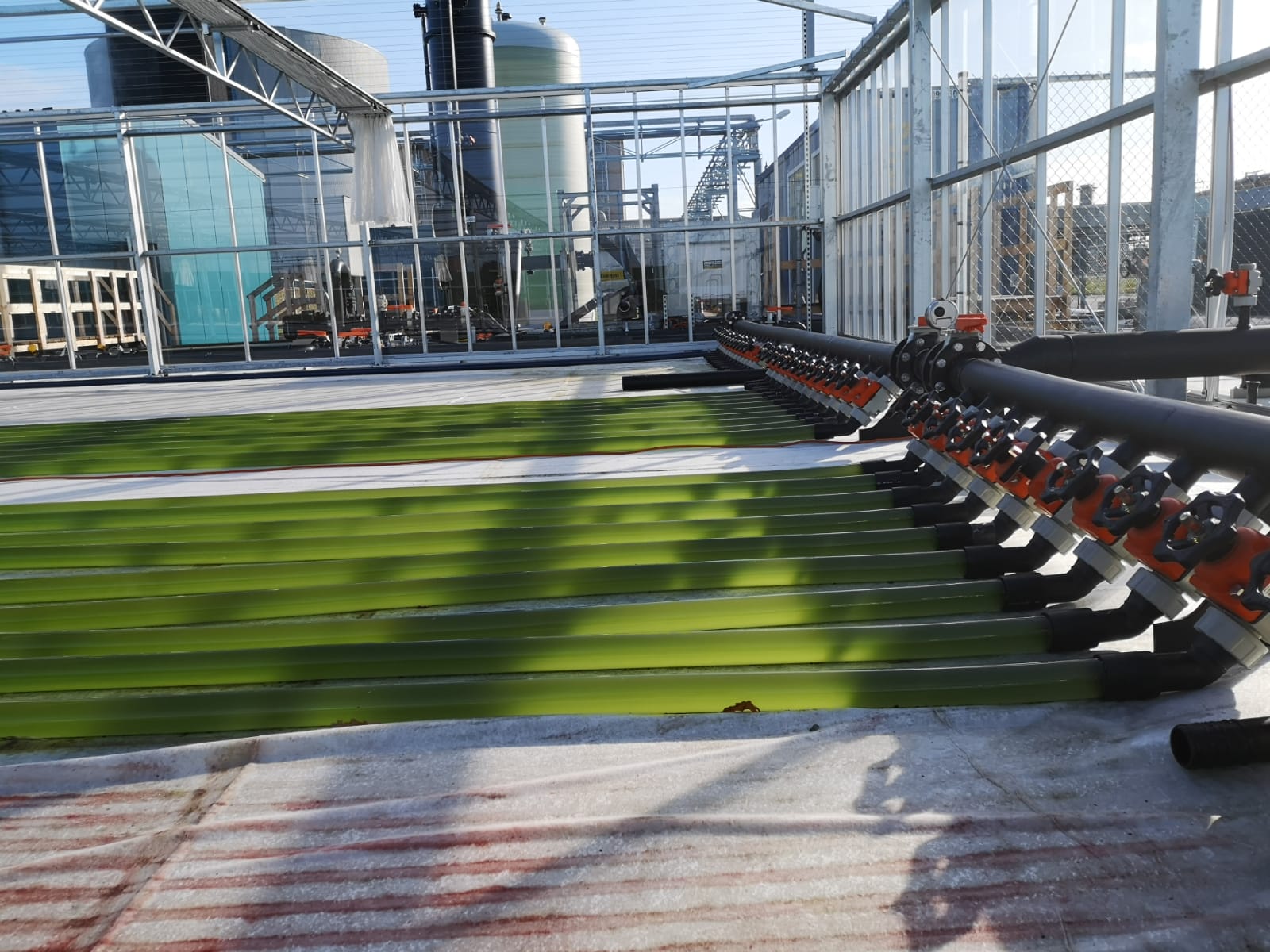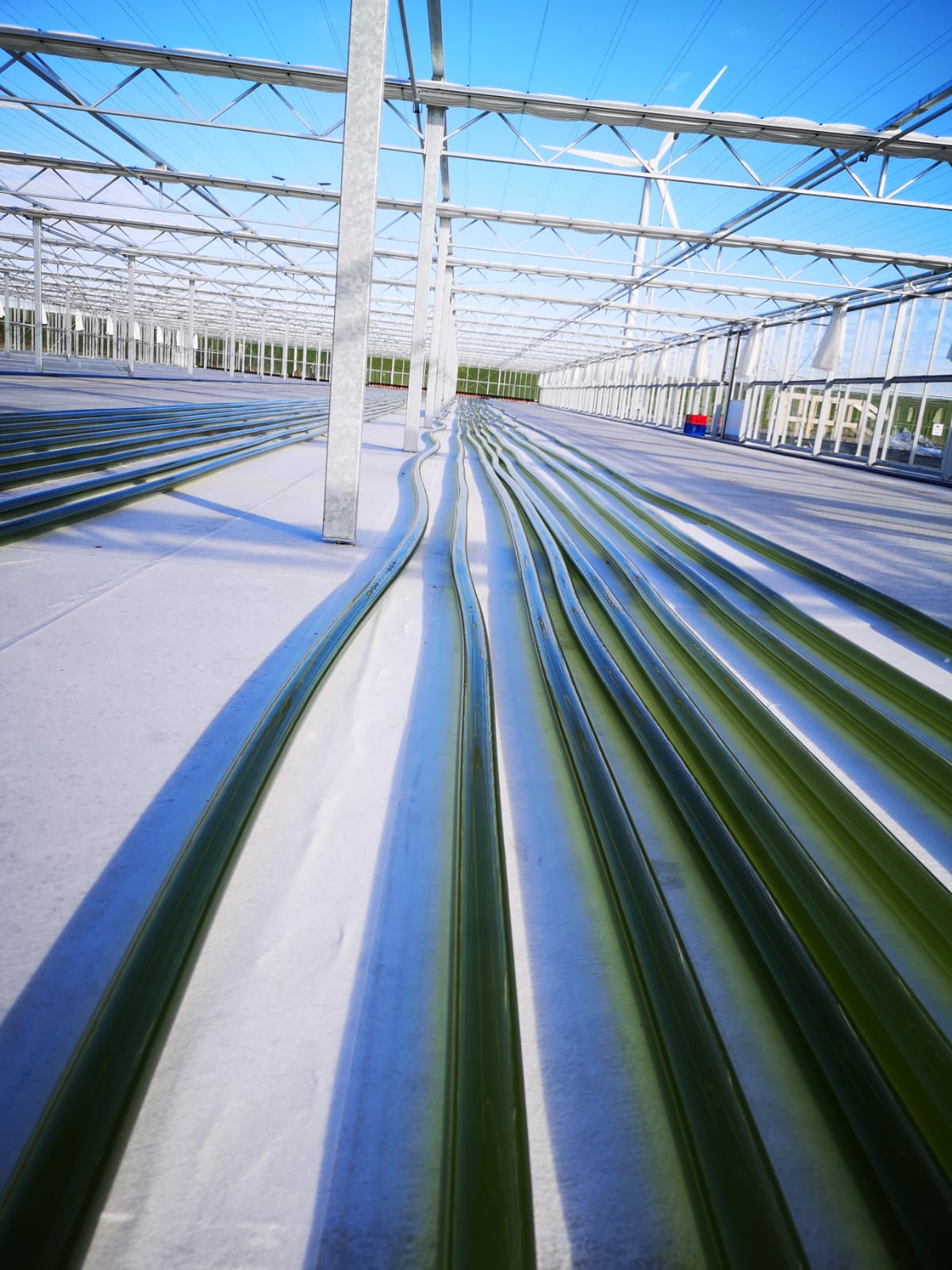Want to know more about this article?
Photanol offers a boost to green chemicals
It sounds too good to be true. A company that doesn’t emit CO2, but uses it instead! For Photanol, carbondioxide is a raw material to produce biodegradable plastics and cosmetics, as well as semi-finished goods for the chemical industry. It may sound like a pipe dream – but Photanol is turning it into a reality. To prove their claim, the Amsterdam-based firm recently built a demo factory in Delfzijl.
“We’ve outgrown our laboratory in Amsterdam,” explains Véronique de Bruijn. “The technology has more than proven itself there.” Her enthusiasm is palpable in every syllable she utters. The CEO of Photanol is proud of the way the company, a spin-off from the University of Amsterdam has developed since its founding in 2012. In September this year a promising new chapter was added to the company’s development: the demo factory at the Chemie Park in Delfzijl. Véronique stresses that this kicks off an exciting new phase for Photanol. “It enables us to showcase and demonstrate the technical and economic feasibility of our groundbreaking new technology on a large scale.”

Cyanobacteria
Photanol is indeed a pioneer in its field. “We produce chemicals and fuels from CO2, eliminating the need for fossil oil,” notes Véronique, summarising her company’s activities. Cyanobacteria, better known as blue-green algae, play a key role in this process. The specially farmed bacteria use photosynthesis to convert CO2 into building blocks (organic acids) for use in the chemical industry. These organic acids can be used as raw materials for the production of biodegradable plastics and cosmetics, as well as semi-finished goods for the chemical industry.
Strategic partner
In short, Photanol offers an innovative solution for reducing CO2 emissions. A solution which has enormous economic potential due to fact that clean chemicals are produced. Now the time has come to provide the real proof in the demo factory. But why build the factory in Delfzijl? “First and foremost because our strategic partner Nouryon (formerly part of AkzoNobel) is based there,” remarks Véronique. “We’ve been collaborating closely with this company for years, and want to continue working with them as we scale up Photanol. That’s why our new demo factory is located next to the Nouryon plant.” The Investment and Development Agency for the Northern Netherlands (NOM) also played a major role in bringing Photanol to the north. Véronique was in contact with Errit Bekkering, NOM Business Development Manager, from an early stage. Errit convinced her that Delfzijl was the ideal location for the demo factory. “During our discussions, it quickly became clear that our business case was a perfect fit for the Chemie Park’s ambition to go green,” recalls Véronique. Chemie Park Delfzijl has a variety of interesting companies that we can team up with in the coming years. The entire ecosystem is set up for collaboration. At the same time, the local area features several knowledge institutions that are also potential partners. There’s a good reason why so many innovative and sustainable chemical firms are based in Delfzijl.”

A substantial boost
The NOM was not the only party excited about Photanol’s decision to build the demo factory in the Northern Netherlands. The Northern Netherlands based funds GROEIfonds and Investeringsfonds Groningen (IFG) were also very happy to see the Amsterdam-based start-up heading up north, which resulted in their decision to finance Photanol and in doing so enable construction of the demo factory. “Naturally we conducted extensive research beforehand,” imparts Fund Manager Jan Martin Timmer of IFG, which is managed by the NOM. “Is the business case well founded? Is the management team capable of turning it into a reality? Everything pointed to Photanol being an asset to the Northern Netherlands. As a region, we want to lead the way in the transition of the chemical sector. Photanol offers a substantial boost to that ambition. Naturally they’re doing the heavy lifting by establishing the demo factory in our region. We will try to facilitate the process as best we can”. “There are many matters which need to be taken care of.” Investment Manager Sytze Hellinga of GROEifonds highlights the driving role that Photanol can play for the region. “This shows that cleantech innovations are possible in the Groningen ecosystem. But Photanol also provides a variety of job opportunities and can tap the highly valued expertise that the Hanze University of Applied Sciences and the University of Groningen offer.”
Container pilot
Véronique reports that she already feels completely at home in the North. “The support of the NOM has been invaluable. For instance, their large network put us in touch with the relevant parties at the municipality and the province, and they helped us navigate the different subsidy options. To prepare for the move to Delfzijl, we first ran a container pilot at the Zernike Campus in Groningen. At the ZAP innovation cluster – a testing ground for biobased experiments in the Northern Netherlands – we further tested the process for producing clean chemicals from CO2 and sunlight, and experimented with improvements in collaboration with students and research groups. The NOM, IFG and GROEIfonds put in a great deal of work to make the container pilot possible. In that way, they were also a huge help getting us embedded in the knowledge institutions.
A stepping stone
Going back to the demo factory in Delfzijl. What exactly should we expect? “We want to show that Photanol can really make a difference,” adds Véronique. “This means we have to prove that the technology can be scaled up, that we have the production process under control and make sure that the organic acids always meet the desired level of quality. It’s a stepping stone on the way to becoming a commercial factory. We will create this commercial factory in phases, adding one or more elements at a time. How many job opportunities do we think we’ll create in Delfzijl? Once operational, the demo factory will need a staff of five. We ultimately hope to grow into a commercial-scale company with 25 – 50 employees. Confidence in the future is high. What’s more, I’m almost certain that Photanol will play a significant role in the transition of the chemical industry.”